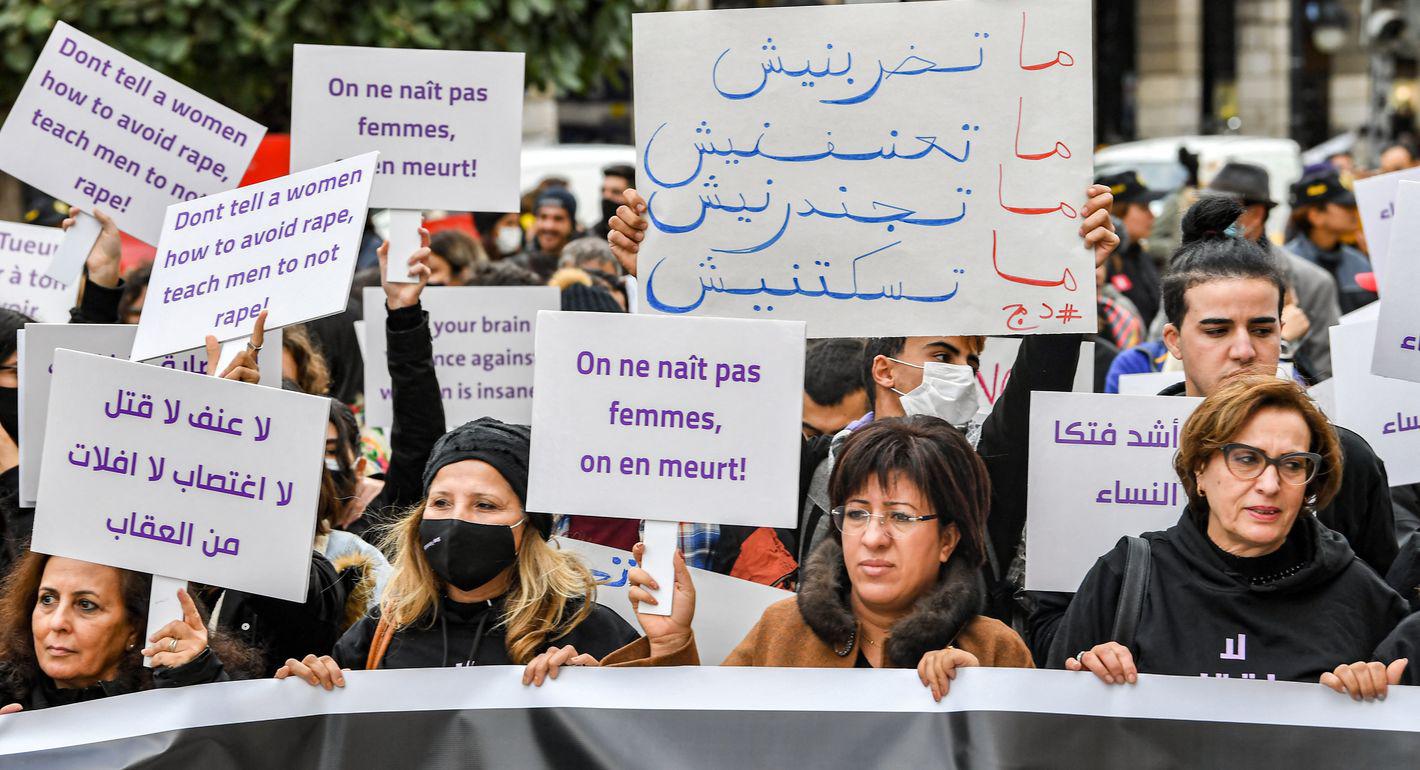Bochra Bel Haj Hamida, a lawyer and former Member of the 2014 Tunisian Parliament, is a feminist icon who has stood up for women’s liberation and democratic values for over four decades. Most recently, she served as the head of the Committee on Individual Freedoms and Equality (COLIBE), where she worked to enshrine gender equality in Tunisian law. In reaction to these efforts, as she noted a 2018 interview, she faced online death threats and disinformation, with new posts appearing “almost every ten minutes.”
As a friend of Bochra, it was shocking to see these posts—orchestrated by her opponents—which claimed that she was working to dismantle Islam in service of a foreign agenda. Sadly, Bochra is far from the only Tunisian feminist activist subject to online harassment in recent years: according to a July 2023 study by #ShePersisted, digital platforms that once played a role in promoting equality and democracy in Tunisia have now become hubs for disinformation and misogyny. Facebook, Twitter, and other social media are being abused to target and silence feminist activists, especially vocal opponents of President Kais Saied’s increasingly autocratic rule.
A study conducted by Aswat Nissa, the Tunisian feminist organization I founded in 2011, reveals a significant escalation of such incidents since July 25th, 2021, when Saied ousted the government and froze the parliament. Women activists who objected to Saied’s interpretation of Article 80 of the constitution—which he invoked to launch the disguised coup—have had their private lives exposed online and endured slut-shaming, objectification, and baseless accusations of betraying Tunisia.
Crucially, the Tunisian government has enabled this kind of online harassment, and the president has personally attacked female activists and public figures. In June 2022, for example, Saied boosted an online defamation campaign against a female judge by accusing her of adultery—part of a wider crackdown on judicial independence. Dictatorships strategically undermine women's rights as a deliberate tactic to erode the foundations of democracy. By stifling women’s political participation and perpetuating gender-based discrimination, they aim to push women to disengage from politics altogether or resort to self-censorship.
Instead of safeguarding digital rights and promoting inclusivity, the Tunisian government has taken a troubling turn, rolling back women's rights and undoing decades of progress. And rather that fighting against perpetrators of gendered disinformation on social media, Saied recently issued a decree to combat online “fake news”. Human rights groups have argued that the move criminalizes free speech, and the law has already been used to suppress political opposition and silence the remaining voices of dissent.
In our digital age, the dissemination of politically harmful and sexist content should not go unchecked. Social media platforms, especially Meta, must be held accountable when it comes to content moderation in Arabic. Equally vital is the state’s role to ensure the safety of all citizens, by establishing and enforcing robust cybersecurity regulations to help protect individuals from cyber threats, safeguard sensitive data, and promote a more secure online environment. The government must also allocate the required resources to enforce Law 58, which aims to protect women from sexual harassment and all forms of violence, but has not been fully implemented since it passed in 2017.
By targeting a public figure like Bochra Bel Haj Hamida, patriarchy tries to strike fear into our hearts and keep us all in check. This past May, the government escalated its attacks on Bochra by including her, along with other Tunisian dissidents, in a criminal investigation on baseless charges of conspiracy. Yet, Saied and his supporters underestimate the strength and determination of the many Tunisian women who stand on Bochra’s shoulders and continue to express their political opinions loudly and clearly, both online and in the streets.
Ikram Ben Said is a Tunisian feminist activist. She is the founder of Aswat Nisaa (Women's Voices) a leading Tunisian feminist organization that advances women's political participation and advocates for feminist public policies.






